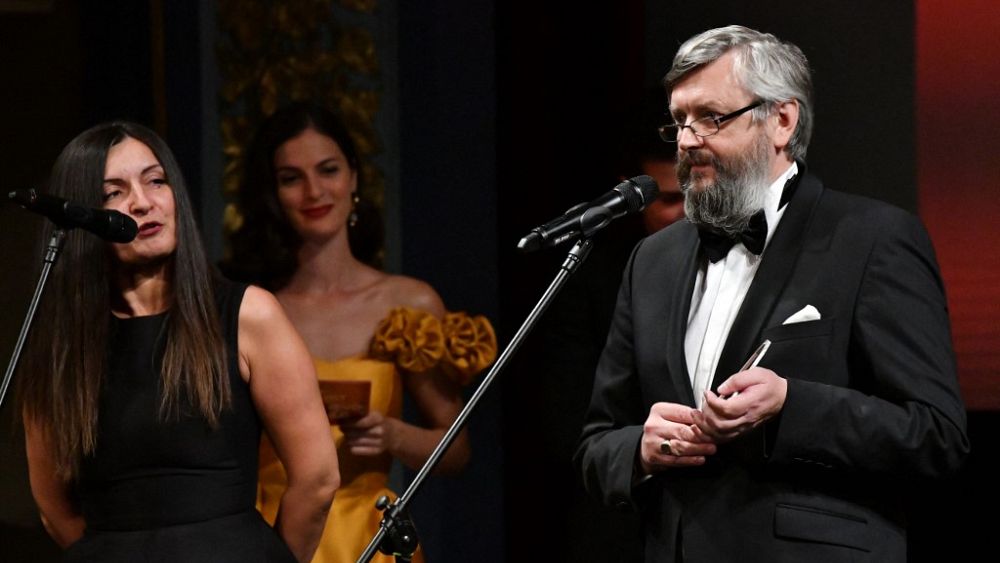Sarajevo Film Festival honours Ukrainian stars of the screen

The Sarajevo Film Festival showcased Ukrainian film talent for the first time in its history this weekend.
The festival — which is the largest industry showcase in the region — allowed Ukrainian films to enter the competition on Friday as an expression of war solidarity.
This is the 28th edition of the event, back after a two-year hiatus due to the Covid pandemic.
Born during the siege of Sarajevo in the early 90s, festival organisers are using the event to highlight Ukraine’s own war plight and the impact of the Russian invasion.
The festival awarded Ukrainian director Sergei Loznitsa with the Heart of Honor of Sarajevo for his extraordinary contribution to the art of film.
Speaking at the event, Loznitsa drew comparisons between Sarajevo’s past and the current war in Ukraine.
“In recent European history, Sarajevo has become a symbol of human tragedy and a symbol of human resilience and dignity. My country, today, Ukraine, is also under a very brutal attack from a very brutal and violent aggressor.”
“This is why this support, this award from Sarajevo for me is so precious,” he added.
A total of 235 films from 62 countries will be shown as part of the Sarajevo Film Festival, which has grown to cover the sector from Vienna to Istanbul.
Eight titles, five of which are directed by women, are in competition for the top prize in the feature film section.
The festival was founded towards the end of the savage 1995 Bosnian war as an act of defiance amid the 43-month siege of the capital by Bosnian Serb forces.
“At the onset of the war in Ukraine it has become clear that something must be done in solidarity with colleagues from film industry in Ukraine,” Jovan Marjanovic, the festival director, told Reuters.
The festival, which was starting on Friday, decided to open its competition programme for work from Ukraine and provided artist-in residence status to Ukrainian filmmakers to enable them to work and further develop their films.
It also offered jobs to Ukrainian professionals who have become refugees but previously worked at film festivals in Kyiv and Odesa.
The Russian invasion halted much film work in Ukraine, with funds diverted to the war effort and people called up to fight.
